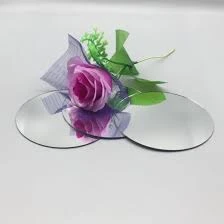

Curved insulated glass units (CIGUs) have become a pivotal innovation in modern architecture, blending aesthetics with functionality. These architectural elements are designed to enhance both the beauty and energy efficiency of buildings, making them a preferred choice for contemporary structures.
One of the distinct advantages of CIGUs is their ability to create dynamic and visually striking designs. Architects can leverage the unique shapes of curved glass to craft facades that draw the eye and transform the overall appearance of a building. This flexibility allows for innovative designs that can make a structure stand out, whether it's a commercial hub, a residential space, or an artistic installation. The seamless curves of the glass provide a smooth flow to architectural lines, eliminating the harsh angles often associated with standard glass units.
From an energy efficiency perspective, CIGUs offer significant benefits. Insulated glass typically consists of two or more glass panes separated by an airtight space filled with argon or another insulating gas. This design dramatically reduces heat transfer, ensuring that buildings maintain a stable interior temperature. In curved designs, the insulation properties are maintained without compromise. This not only leads to reduced energy costs for heating and cooling but also lowers the carbon footprint of the building, aligning with sustainable building practices.

Moreover, curved insulated glass units also provide excellent acoustic insulation. This is particularly beneficial in urban environments where noise pollution can be a serious concern. The multi-layered structure of CIGUs effectively dampens sound, creating a serene indoor environment that enhances quality of life for residents and workers alike.
Installation quality is crucial for maximizing the performance of CIGUs. Precision is required to ensure that the curves fit perfectly within the building's structural framework. Quality manufacturers use advanced technologies and materials to produce these units, ensuring not only their durability but also their visual clarity. The integrity of the seals and the quality of the glass are paramount to preventing issues such as condensation or thermal stress, which can compromise the efficiency and aesthetics of the design.
In conclusion, curved insulated glass units represent a harmonious blend of art and science. Their ability to provide stunning visual appeal while promoting energy efficiency and acoustic comfort makes them an outstanding choice for modern architecture. As the demand for innovative and sustainable building solutions grows, CIGUs are sure to play an increasingly important role in shaping the skylines of the future.